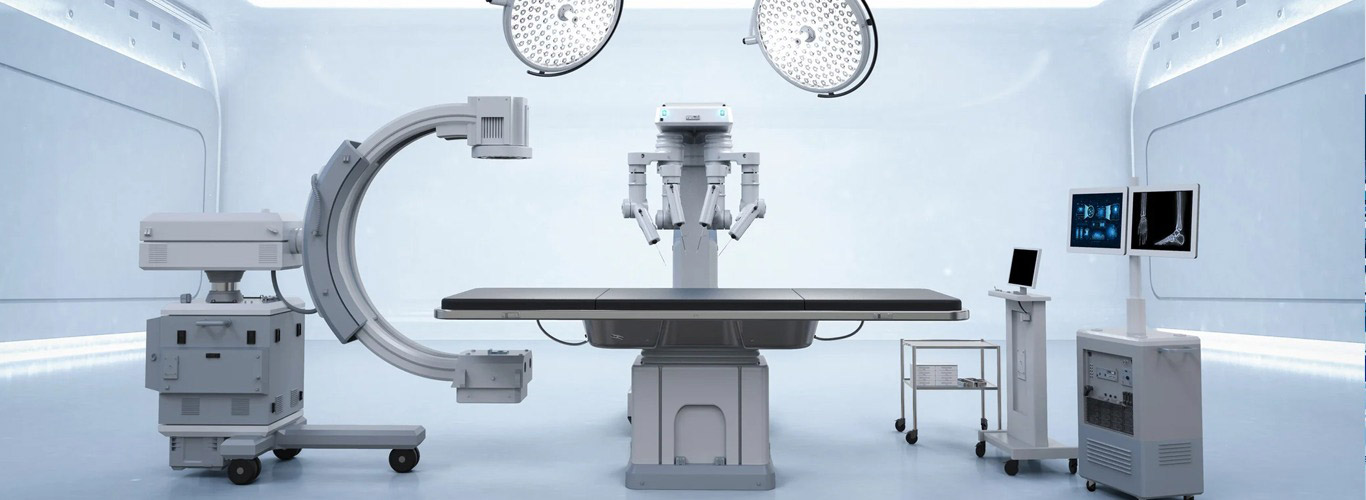How to Extend the Lifespan of Your Medical Equipment? Maintenance Tips and Best Practices
Posted on 29/04/2024

In the world of healthcare, our medical equipment plays a silent but critical role in taking care of patients. These machines, from X-rays to heart monitors, are like the superheroes in a hospital. However, even superheroes need help sometimes, and for medical equipment, that help comes from proper maintenance.
Let's get started on the journey to protect and prolong the life of your medical heroes!
Importance of Medical Equipment
- Patient Care and Treatment
- Diagnosis and Screening
- Monitoring Chronic Conditions
- Research and Development
- Infection Control
What are the reasons for short lifespan of medical equipment?
The limited lifespan of medical equipment can be attributed to various factors, each impacting the device's durability and effectiveness. To gain a clearer understanding, here are some key reasons for the relatively short lifespan of medical equipment:
1. Frequent Use: In high-demand healthcare settings, such as hospitals, medical equipment is often utilized continuously. This constant usage accelerates wear and tear, ultimately shortening the equipment's lifespan.
2. Inadequate Maintenance: Irregular or insufficient maintenance practices significantly contribute to equipment deterioration. Neglecting routine inspections, cleaning, and preventive maintenance can lead to breakdowns and reduced longevity
3. Environmental Conditions: Medical equipment exposed to harsh environmental factors, like extreme humidity, temperature fluctuations, or corrosive substances, is more susceptible to premature aging.
4. Improper Handling: Mishandling of medical equipment, including accidental drops, rough usage, or incorrect setup, can result in physical damage
5. Manufacturing Defects: Occasionally, medical equipment may exhibit manufacturing defects that become apparent after a certain period of use. Robust quality control measures and equipment recall systems are crucial to address this issue
Increase the lifespan of your medical devices with this simple tips
1. Regular Cleaning and Sterilization:
One of the most fundamental maintenance practices for medical equipment is regular cleaning and sterilization. Dirty or contaminated equipment can not only compromise patient safety but also lead to the premature wear and tear of the devices. Develop a cleaning and sterilization schedule, following manufacturer guidelines and industry standards, and ensure that your equipment is in pristine condition.
2. Conduct Routine Inspections:
Establish a routine inspection protocol for all your medical equipment. Regular inspections can help detect minor issues before they escalate into major problems. This includes checking for loose connections, frayed wires and any signs of wear and tear. Make sure to document your inspections to keep a comprehensive maintenance record.
3. Store Equipment Correctly:
Proper storage is as essential as regular maintenance. Ensure that medical equipment is stored in clean, dry, and temperature-controlled environments to prevent damage from humidity, extreme temperatures, or dust. Additionally, follow the manufacturer's guidelines for storage to avoid unnecessary wear and tear.
4. Replace Parts and Accessories:
Worn-out or damaged parts and accessories can significantly impact the performance and safety of your medical equipment. Regularly inspect these components and replace them as needed. Ensure that you only use manufacturer-approved parts to maintain equipment warranties and safety standards
5. Invest in Quality Equipment:
High-quality medical equipment tends to have longer lifespans and lower maintenance requirements. While it may be tempting to cut costs by purchasing cheaper alternatives, investing in reliable, well-manufactured equipment can save you money and time in the long run.
Proper maintenance and best practices for your medical equipment not only save costs but are absolutely vital for ensuring patient safety. By adhering to these guidelines, you'll keep your medical equipment in peak condition, enabling you to deliver the highest standard of care to your patients while minimizing disruptions and replacement expenses. Always remember, a well-maintained medical device is synonymous with reliability, an absolute necessity in the healthcare sector.

